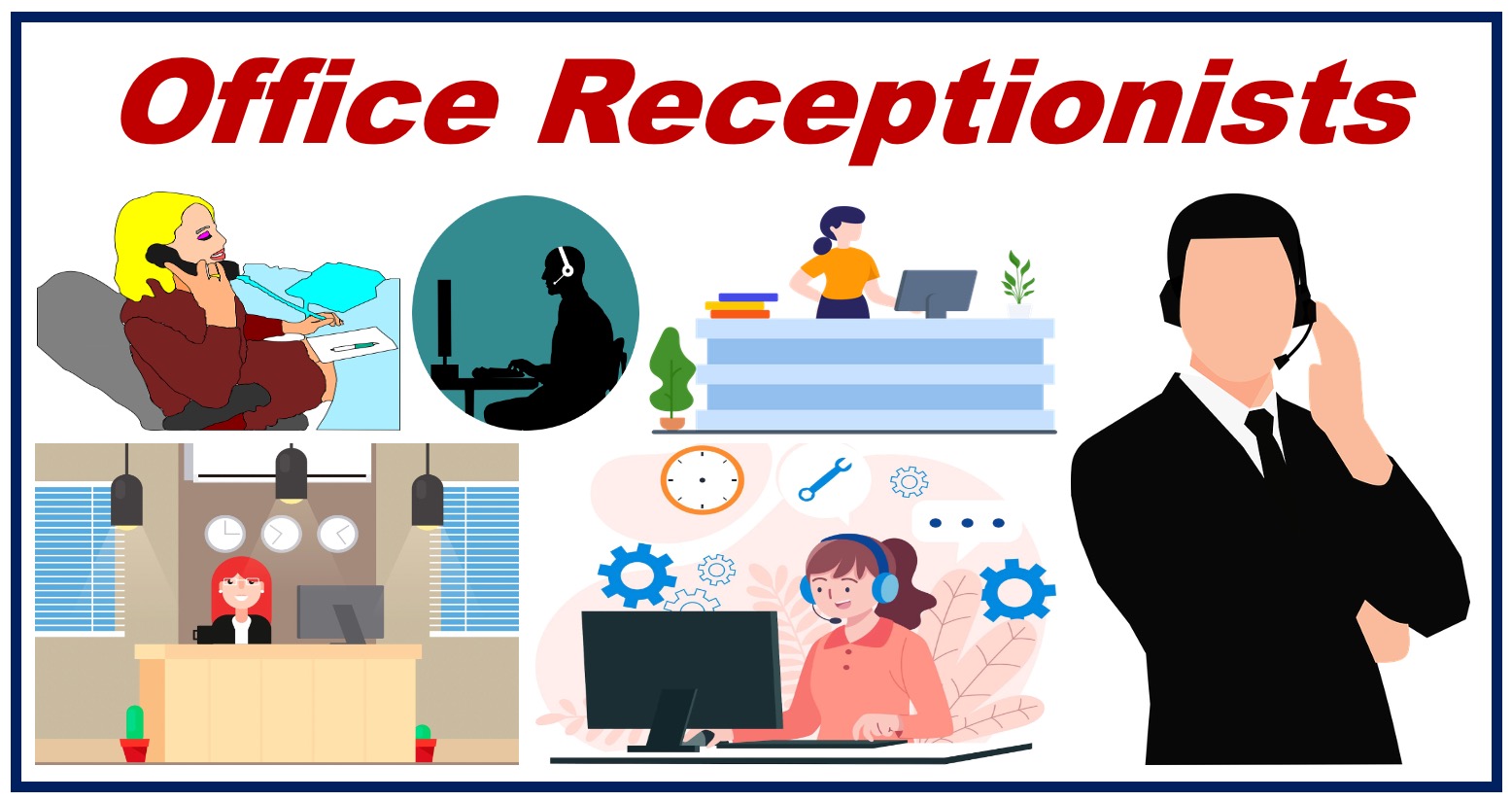Office receptionists are essential members of any team. Here is a brief rundown of their typical responsibilities.

Answering Calls
One of the major responsibilities held by receptionists involves the fielding of inbound calls. Once calls have been picked up by a receptionist, they are expected to either fully satisfy the caller or hand them over to the correct department of the business.
In order to handle call forwarding effectively, receptionists need to have a good knowledge of the responsibilities of each department within their company. In recent years, virtual receptionist agencies have begun offering a live answering service to businesses that cannot afford to staff their own teams of receptionists.
Handling Emails
Many inquiries are now made using email. Receptionists are usually in charge of the broad helpdesk email given out to the public by a business.
Receive Visitors
Receptionists are usually the first point of contact for people visiting an office. They greet visitors, guide them to any meetings or areas of the office that they need to get to and ensure that they can contact the right people. This area of work requires great people skills and a willingness to represent the chosen values of the company that they work for.
Visitors may occasionally arrive with complex requests, or requests that cannot be fulfilled. Receptionists must be careful and compassionate negotiators in these circumstances. They must fully assess a situation before elevating it to be dealt with by management staff.
Maintaining Security and Admittance Standards
As part of their role at the ‘front of house’ greeting visitors, office receptionists are required to work to keep their business safe. This usually involves working with members of the security team to identify unauthorized people trying to gain access. In some circumstances, receptionists may have to monitor Closed Circuit Television screens – reporting anything of concern to security team members or managers.
Receptionists are expected to monitor the operation of authentication technologies in use at the entrance to an office. When authentication devices are out of use, receptionists have to take extra care to screen people entering or exiting an office.
Managing Office Calendars
Perhaps the most frustrating and complex role that receptionists have to keep on top of is the management of office calendars. Receptionists are expected to manage and share important schedules so that their office can keep on running efficiently. They are expected to work out the likelihood of potential scheduling conflicts before they happen and to use their considerable interpersonal acumen to smooth out any issues that might result from these conflicts.
As well as handling the general scheduling of an office calendar, receptionists are often expected to act as personal scheduling assistants to executives and managers. In this role, they need to be able to develop a good, efficient professional relationship with the person whose schedule they are managing. If you’re a new company and need rapid organization, hiring an executive assistant recruitment for startups would allow you to hit the ball rolling and avoid any mishaps that often could occur with under-vetted candidates.
Although they need to accommodate the scheduling needs of their bosses as much as possible, they also need to be able to point out when schedules are unrealistic.
Organizing Meetings
If executives within a business do not have Personal Executive Assistants, the role of meeting organization and correspondence usually falls to the receptionist working at the front desk. Receptionists need to keep on top of all meeting room calendars so that they can direct participants to the correct room and notify them of any changes in schedule.
Large offices usually have at least one meeting going on within their confines at any given time during the workday. Receptionists are often responsible for gathering staff members from the office floor if they are needed in a meeting.
They are the friendly face that helps to ‘round up’ meeting participants so that schedules are kept to tightly. Meetings often overrun, so tight scheduling often involves some chopping and changing of meeting rooms.
Administrative Assistance
Receptionists typically have to complete administrative tasks that are not necessarily mentioned in their job descriptions. The reason for this is simple: they are usually the people on hand and present when a small administrative task emerges.
It is bad business practice to drag receptionists away from their regular tasks for too long, but that does not stop managers from getting reception desk workers to make business-to-business outbound calls, administer mail or arrange office seating.
For this reason, receptionists have to be prepared to be somewhat flexible while at work. They also need to be able to say no to managers when they are asked to complete work that is outside of their wheelhouse.
Interesting related article:

